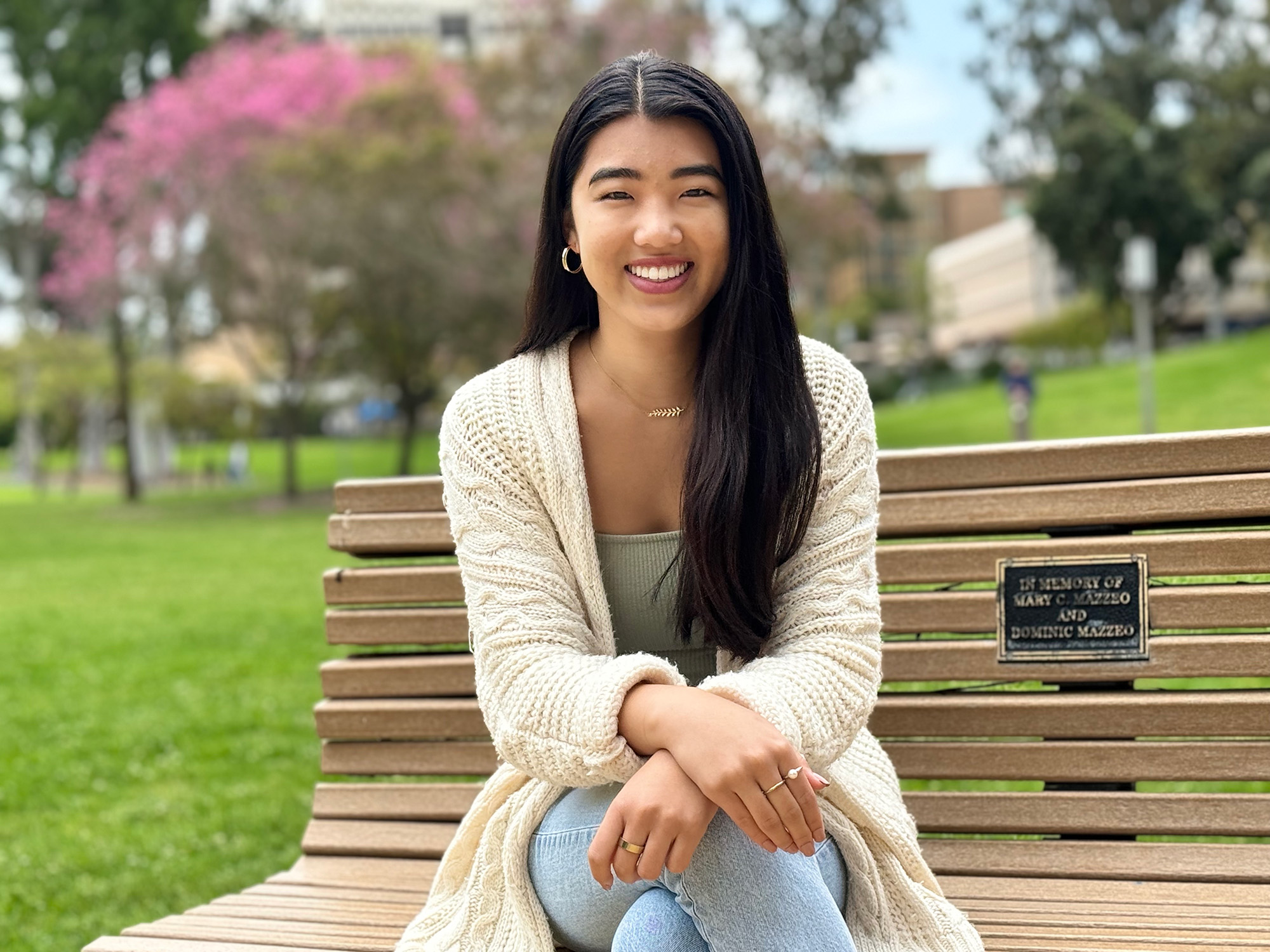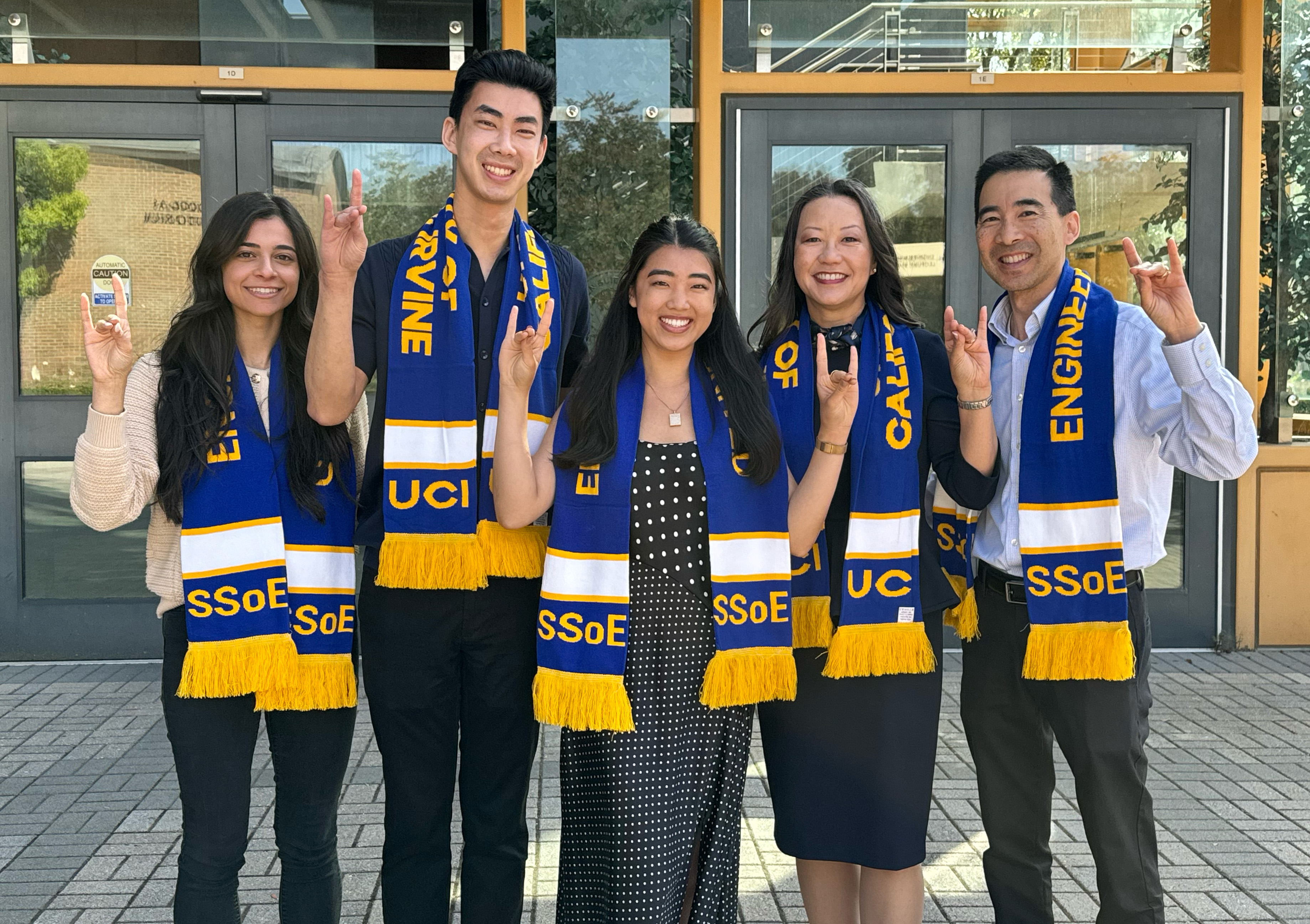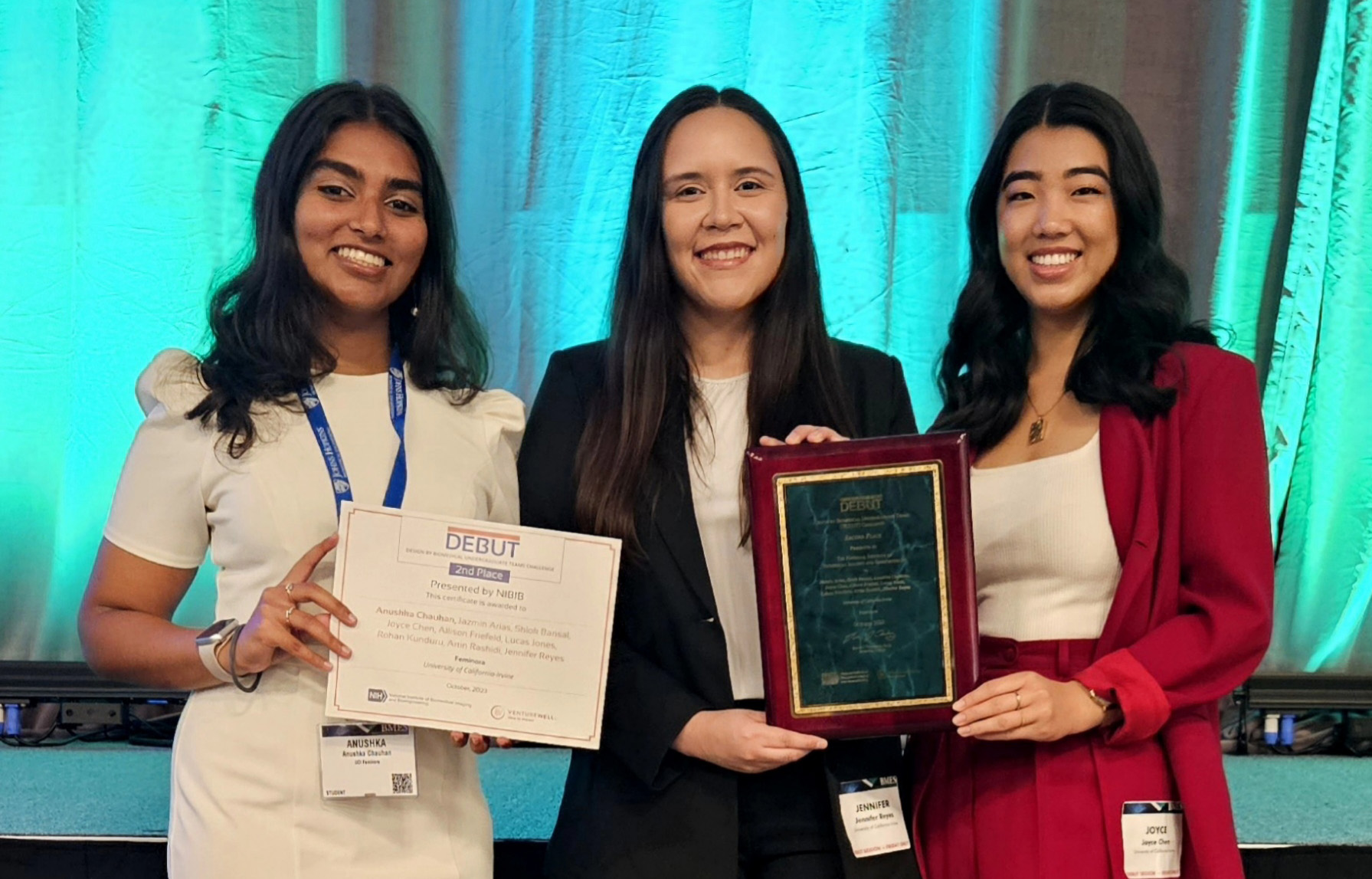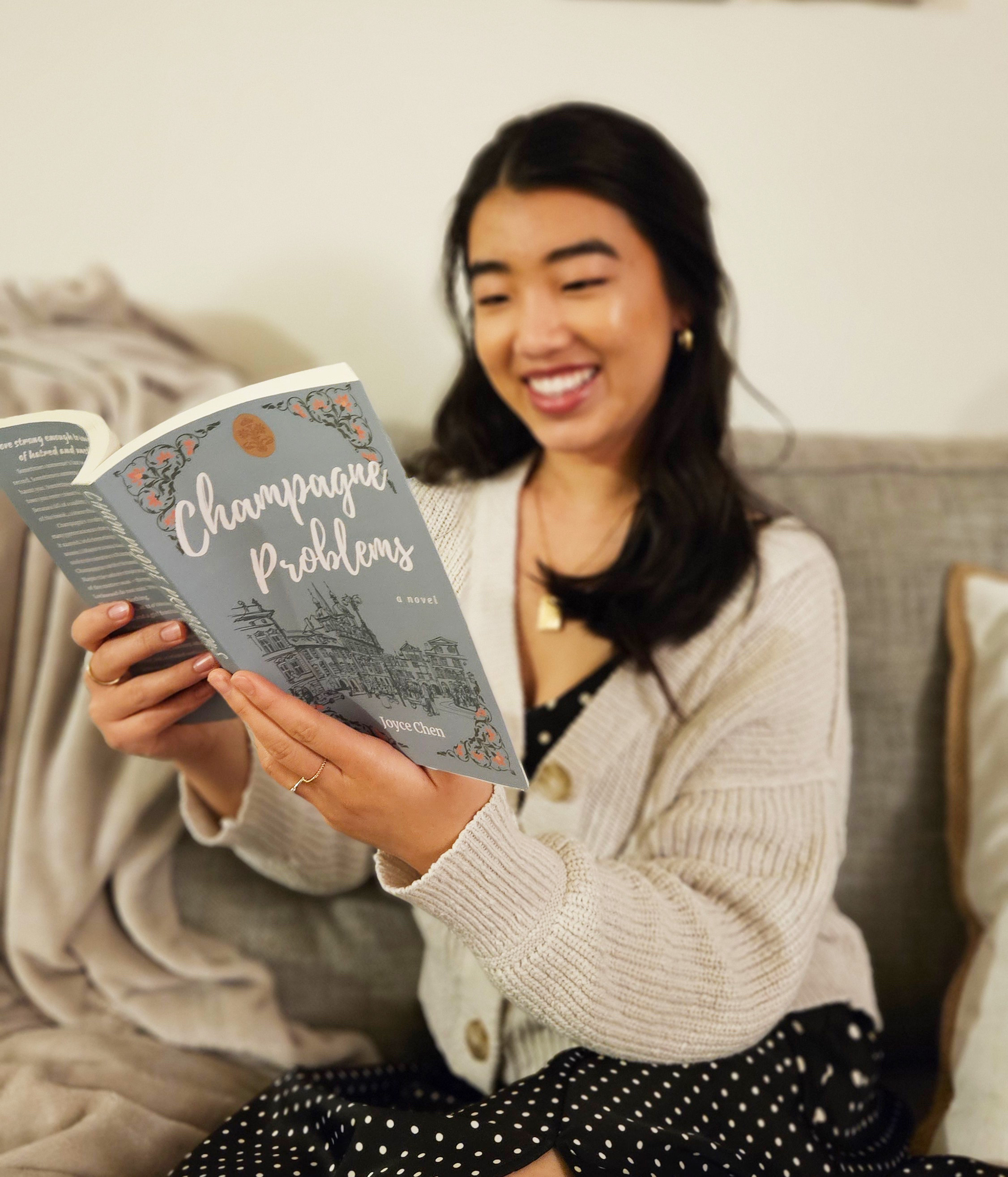Engineering Inspires Hope: Student Commencement Speaker

June 4, 2024 - “Engineers are hope-givers,” says Joyce Chen, the engineering school’s student commencement speaker. “We have to believe what we can make tomorrow is better than what exists today.”
The radiant biomedical engineering senior comes from a family of engineers and Anteaters. She’s been zotting at UCI ball games since she was 8 years old. Her parents, brother and sister-in-law are all Anteaters and the men in her family – grandpa, father, uncles and brother - have the spectrum of engineering covered.
“I used to think engineering was for boys,” she said. She had no interest until her dad started working on medical devices. That’s when she saw the inspiring connection between innovation and helping people.
While airshows hooked her father and brother to become engineers, for Joyce, it was trips to the orthodontist. She was fascinated with braces and asked the dentist endless questions on how they worked. That’s when she set her sights on biomedical engineering, and UCI’s program impressed her. She also loved the idea of being an Anteater family. Joyce says her parents are some of her favorite people in the world.

“My favorite part of engineering is making things,” she says. As a girl, she loved making fun and useful items like bracelets and jewelry boxes. Now at UCI, she’s creating a medical device that could revolutionize an area of women’s healthcare: the pelvic exam. At the startup company Feminora, she helped design the award-winning OneSpec, a new take on the vaginal speculum - which hasn’t been reinvented in over a century. Yes, over a century.
“Not only did she take on a design that still required significant engineering and innovation to make it work,” says her adviser, UCI biomedical engineering Assistant Professor Christine E. King, “she was able to build it physically through computer-aided design as we grew our team.”
Their speculum promises to be easier for doctors to use and more comfortable for the patient, which means women will be more willing to get preventative care. Joyce said Feminora is the coolest thing she’s been a part of at UCI and women love the concept. “Every single woman that I’ve told we’re reinventing the speculum says, ‘Oh, thank goodness! It’s about time!’”

Joyce presented for OneSpec when it won first place at UCLA’s MedTech Partnering Conference and second place at the National Institutes of Health Design by Biomedical Undergraduate Teams (DEBUT) Challenge. It has been accepted into the LARTA accelerator program for healthcare startups and will soon begin its FDA submission process.
Christine King, the professor that founded Feminora, credits Joyce for not only giving award-winning presentations but also growing the company from a small idea into a real product. “As a student and a person,” King said. “Joyce is an exceptional human being.”
When she’s not designing medical devices, Joyce likes to lose herself in a world she’s invented in her mind. “I love writing because it’s an escape from reality where your imagination is really the limit,” she says. Joyce has been writing stories and poetry since fifth grade.
This past Valentine’s Day, Barnes & Noble published her first romance mystery Champagne Problems. Inspired by a Taylor Swift song title, the novel is a wholesome love story between a boy and girl from rival towns whose residents are forbidden to interact with each other. She describes it as “a Hallmark movie in a book.”

Joyce also enjoys planning events and managing Instagram for Navigators, a Christian group on campus. “Hope is such a cornerstone of my faith,” Joyce said. “The more I study science and the human body, the more I learn about God and His intentional intelligent design.”
As for biomedical engineering, she loves the challenge and potential benefits to humanity that creating medical devices brings. She says the impression that engineering is hard is true. “That’s because you’re solving problems that have never been solved before,” Joyce says, “We have to believe that we can make the impossible possible.”
That is the brilliance and hope of engineering, and that’s what she’ll speak about at Commencement on June 16.
- Natalie Tso
